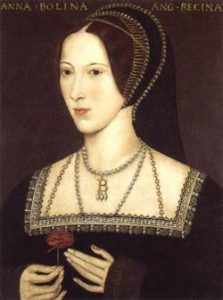 Not only was this day in 1533 an important day in the religious calendar, being Good Friday, it was also an important day for Henry VIII and his second wife, Anne Boleyn. It was on 11th April 1533 that Henry VIII ordered his council to recognise Anne as his rightful wife and queen, and to accord her royal honours.
Not only was this day in 1533 an important day in the religious calendar, being Good Friday, it was also an important day for Henry VIII and his second wife, Anne Boleyn. It was on 11th April 1533 that Henry VIII ordered his council to recognise Anne as his rightful wife and queen, and to accord her royal honours.
The following day, the pregnant Anne Boleyn attended Holy Saturday mass “with all the pomp of a Queen, clad in cloth of gold, and loaded (carga) with the richest jewels.” A real statement!
In the meantime, the newly appointed Archbishop of Canterbury, Thomas Cranmer, was busy working on the king’s “great matter”, the annulment of his marriage to Catherine of Aragon.
Also n this day in history, 11th April 1492, Marguerite de Navarre (also known as Marguerite of Angoulême and Marguerite de France) was born. Click here to read more about her.